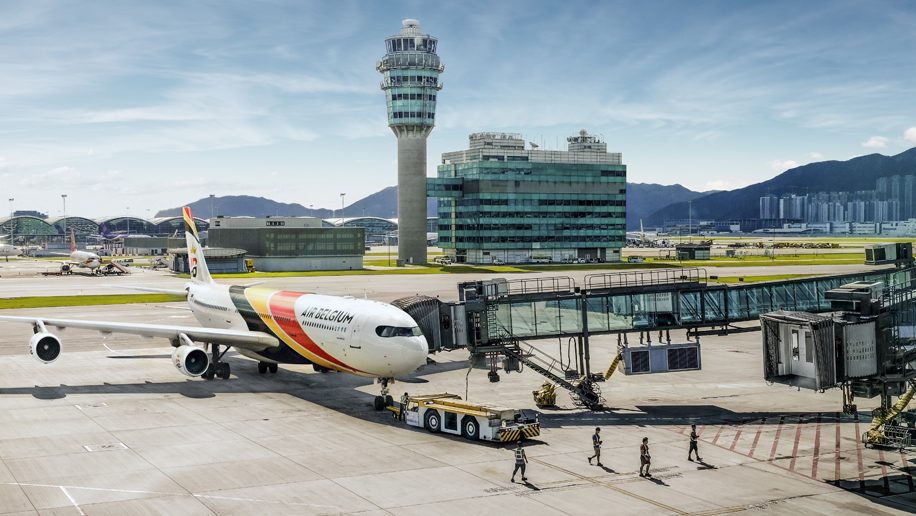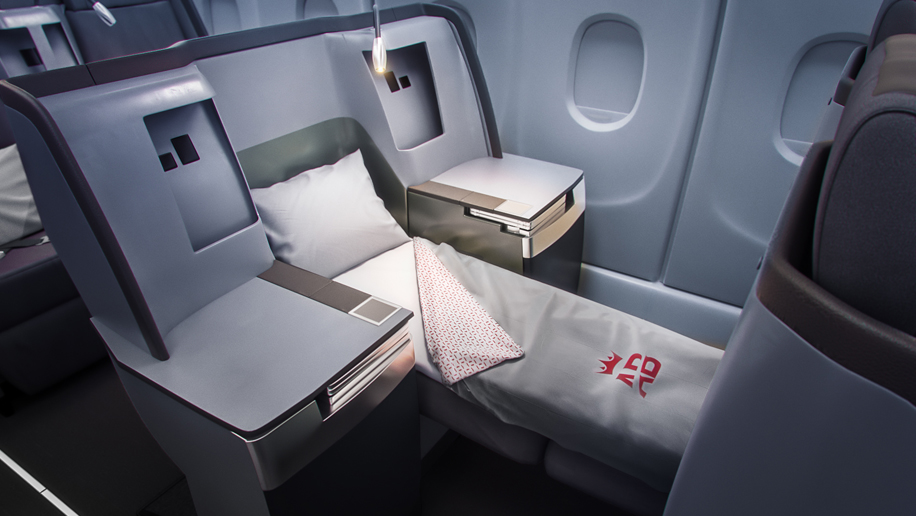
Belgian startup airline Air Belgium has made a U-turn on its previously planned resumption of flights to Hong Kong on March 31, with the airline’s boss saying current market conditions mean flights between its Brussels South Charleroi base and Hong Kong would no longer be viable.
“The economical and operational conditions are not met to viably resume the service,” said Air Belgium CEO, Niky Terzakis. “It is a painful decision to make but a reasonable one when it comes to preserving our development capabilities and assure continued full employment.”
Passengers already booked on flights to and from Hong Kong are being contacted and will be offered a full refund, the airline said in a press release.
Instead, Air Belgium will focus on development in mainland China – a market the carrier had previously touted as its next step after Hong Kong – and the Americas. Air Belgium plans to launch flights to two destinations in China this summer, and is finalising plans to begin flights to the Americas by next winter.
Since it axed its Hong Kong service in October, Air Belgium has been leasing its fleet of four Airbus A340 aircraft to other carriers, including British Airways, which is using the aircraft on one of its New York services while some of its Boeing 787-9s undergo precautionary inspections of their Rolls-Royce Trent 1000 engines.

Analysis
Air Belgium has had a rocky start right from the very beginning. The airline, which bills itself as a hybrid carrier offering premium seats and service but at low-cost rates, originally had its sights set on launching non-stop flights between secondary airport Brussels South Charleroi and Hong Kong in March last year.
However, issues with securing Russian overfly rights as well as problems with the global distribution system (GDS) forced the carrier to push back the launch of its inaugural service multiple times before finally taking off on in early June.
The damage had been done, though, with Terzakis noting at the time of the route’s launch that bookings were “too low for [his] liking”, sitting at about 39 per cent rather than the 50-60 per cent target. Four months later, Air Belgium axed its one and only route.
Since then it has operated merely as a caretaker for select routes operated by other carriers, notably British Airways. By the end of March, the airline estimates it would have carried some 200,000 passengers. “These activities are allowing the company to be acknowledged for its quality of services, reliability, agility and flexibility,” Air Belgium said in a press release.
While the company has been growing in size, now numbering 248 full-time employees compared to 176 when it dropped its Hong Kong flights, it’s difficult to see the carrier succeeding in China where it failed in Hong Kong.
On its Hong Kong route, Air Belgium had direct competition from home carrier Cathay Pacific, whose own non-stop route between Hong Kong and the primary Brussels Airport did take off in March 2018. Along with offering connections out of Hong Kong, Cathay Pacific also provides passengers with options out of Brussels through its codeshare with Brussels Airlines.
Just across the Chinese border, Hainan Airlines also launched its own flights to Brussels from Shenzhen last year, the airline’s established domestic network enabling it to access feeder markets from across China.
Air Belgium’s China strategy previously included lesser-known destinations, notably Taiyuan, Zhengzhou and Wuhan. China is a difficult arena for overseas carriers, and many far more established international airlines have had difficulty sustaining themselves in the market with non-stop flights to cities other than Beijing and Shanghai. British Airways dropped its Chengdu service in 2016, while United dropped its flights from San Francisco to Xian and Hangzhou in 2017, both about a year after they were launched.
Even China’s biggest cities are no guarantee for success. American Airlines cut two of its Chicago routes serving Beijing and Shanghai in October last year, citing difficulties keeping them economically viable.
As a point-to-point enterprise with no network out of Brussels South Charleroi, no airline alliance support and no codesharing or interline agreements with Chinese carriers, Air Belgium is almost certain to find China a thoroughly difficult prospect.












